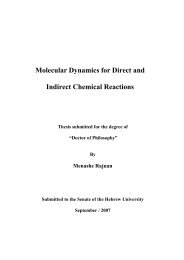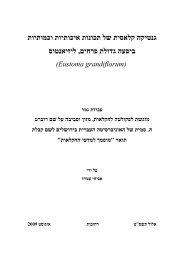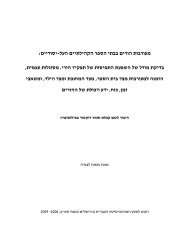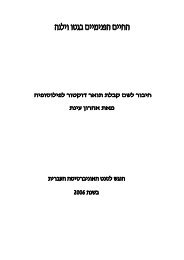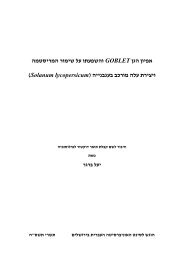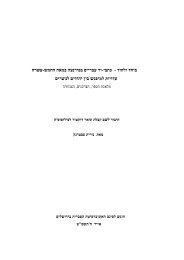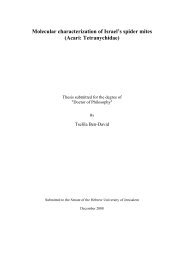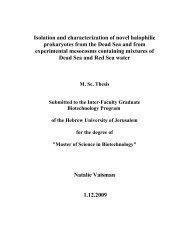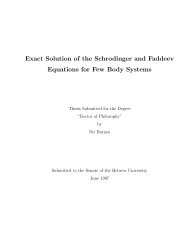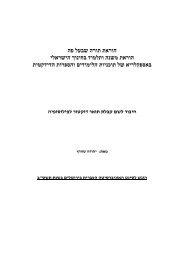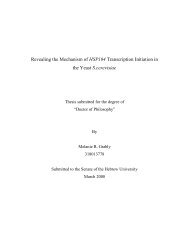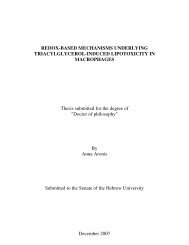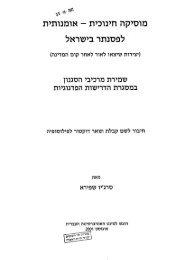××ר×ת ס×פ×ר ×× ×¡ ××קר×× ×××× ×× ××××××ª× ××שר×× - ×××× ××רס××× ××¢×ר×ת ...
××ר×ת ס×פ×ר ×× ×¡ ××קר×× ×××× ×× ××××××ª× ××שר×× - ×××× ××רס××× ××¢×ר×ת ...
××ר×ת ס×פ×ר ×× ×¡ ××קר×× ×××× ×× ××××××ª× ××שר×× - ×××× ××רס××× ××¢×ר×ת ...
Create successful ePaper yourself
Turn your PDF publications into a flip-book with our unique Google optimized e-Paper software.
that a child who has reached a certain cognitive level tends to be "caught up" in ageappropriate<br />
material and to develop strong motivation (emotion) to delve further into<br />
it. This desire, in turn, promotes more successful learning. Since multi-dimensional<br />
learning demands abstract<br />
thinking and emotional motivation, it cannot be<br />
successfully carried out until the child has reached the appropriate cognitive level,<br />
namely adolescence. (b) The "philosophical" school rejects the idea of a clear-cut,<br />
stage-related development of the child`s cognition and emotions. Children can handle<br />
certain kinds of abstract thinking<br />
at a very young age, and their thoughts and<br />
emotions can be encouraged and stimulated by adults. Therefore it is impossible to<br />
predict when a child will be capable of multi-dimensional learning. The teacher may<br />
encourage more complex learning by stimulating the child`s creativity, emotion,<br />
curiosity, and sense of wonder.<br />
Egan`s educational theory of learning would seem to combine aspects of both<br />
schools of thought, though he is closer to the philosophical school. He argues that at<br />
different stages of development, children make sense of reality in different ways, and<br />
that the story form, a structure embraced by every human culture, is particularly<br />
helpful in enabling the child to locate meaning in his world. Children do not<br />
necessarily proceed from concrete to abstract thinking, but rather engage in different<br />
kinds of abstract thinking as they grow, and adults can enhance their learning by<br />
stimulating their emotions, curiosity, and creativity.<br />
Members of the curricular committee may very likely find Egan`s theory<br />
particularly relevant to the teaching of biblical miracle stories, inasmuch as it accords<br />
great importance to "master stories", foundational stories within every culture that<br />
contain its myths and collective memory. Several key biblical miracle stories clearly<br />
serve as "master stories", and Egan's ideas provide a powerful model for<br />
322



